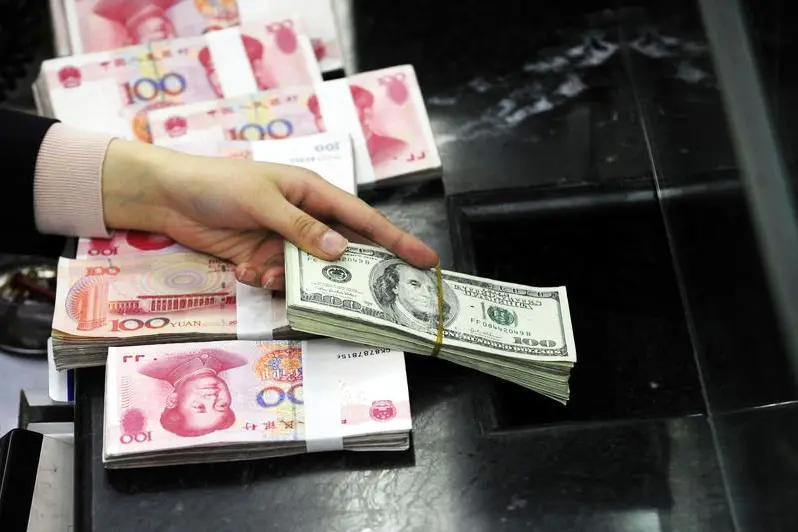PHOTO
U.S. Treasury yields fell to their lowest levels in a week on Friday after the U.S. imposed trade sanctions on China, raising fears about trade wars that could weigh on economic growth.
U.S. President Donald Trump announced hefty tariffs on $50 billion of Chinese imports as Beijing threatened to respond in kind.
"You've seen a little bit of a risk off trade, which is aiding in the Treasury rally," said Justin Lederer, an interest rate strategist at Cantor Fitzgerald in New York.
Benchmark 10-year notes gained 10/32 in price to yield 2.910 percent, down from 2.946 percent on Thursday.
U.S. bonds also gained in line with European government debt a day after the European Central Bank's meeting was interpreted as being dovish.
"There is a continuation of reaction to yesterday's ECB's statement and Draghi's comments," Lederer said.
The ECB decided to end its 2.55 trillion euro ($3.02 trillion) bond-purchase program at the close of the year and said interest rates would stay unchanged until the summer of 2019.
As a result, traders pushed back expectations for a rate hike to September 2019, three months later than they had previously anticipated.
"'Through the summer' is intentionally not precise," ECB President Mario Draghi told a press conference. "There is a desire to maintain optionality in each and every part of this decision.
" Relief that the Federal Reserve struck a moderate tone when it raised interest rates on Wednesday also added to bond strength.
"The Fed came out with something that was really balanced.
They reiterated their gradual approach but at the same time there were really no signs that are overly worried about inflation exceeding their target by a wide margin," said Boris Rjavinski, senior strategist at Wells Fargo in New York.
The bond rally also fits a pattern of strength after Fed rate increases, Rjavinski said.
"More often than not you get a rally in Treasuries following the FOMC meeting where they increase the rate," he said.
The Bank of Japan on Friday downgraded its assessment on inflation and its governor stressed his resolve to keep the money spigot wide open, reinforcing views Japan will lag well behind its U.S. and European peers in dialing back crisis-mode policies.
(Editing by Richard Chang)
© Reuters News 2018





















